Best Practice Guide for Collecting Agroecological Knowledge
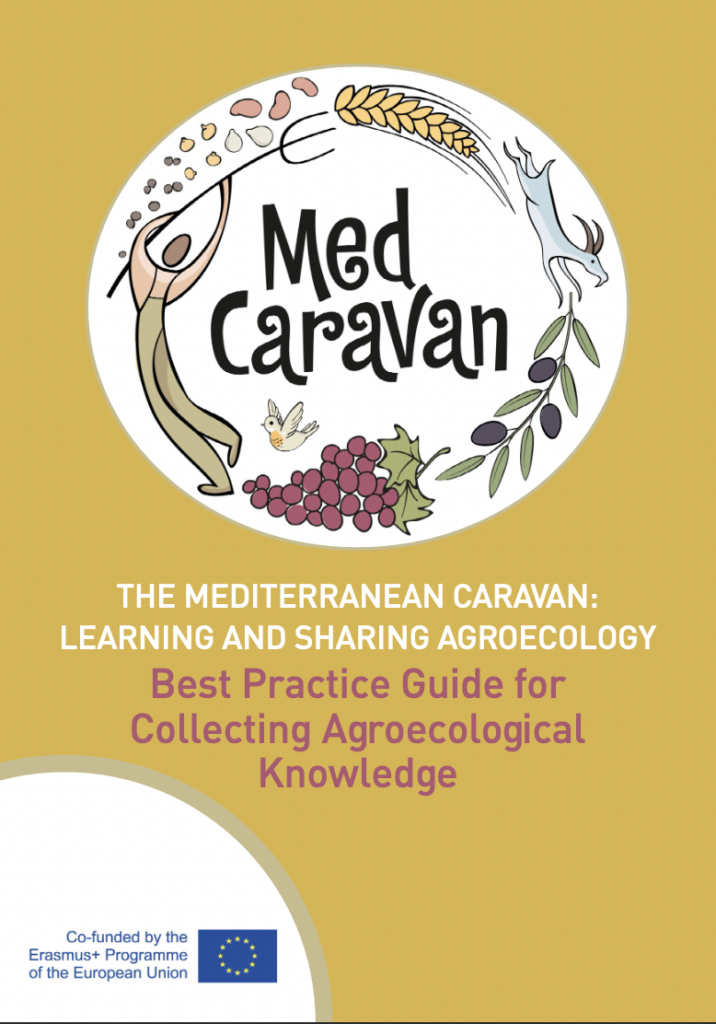
Agroecology knowledge is applied around the world by farmers who take ecological principles in their agricultural production seriously, and by other food systems actors. It is especially important to collect traditional, nature-friendly practices before they disappear. Similarly, it is equally important to publish them in media accessible to those who need them in order to transfer this knowledge to future generations and to popularise them. Understanding this necessity, the MedCaravan team created the Best Practice Guide for Collecting Agroecological Knowledge which aims to help the efforts to collect and record agroecology knowledge in a proper way. This booklet carries the hope that agroecological practices, which provide solutions in many areas – from agriculture to art, from supply systems to community solidarity – will be widespread as a useful tool for the recovery of agroecosystem needs.
Food Policy Handbook – SALSIFI Advocacy for Agroecology Partnerships
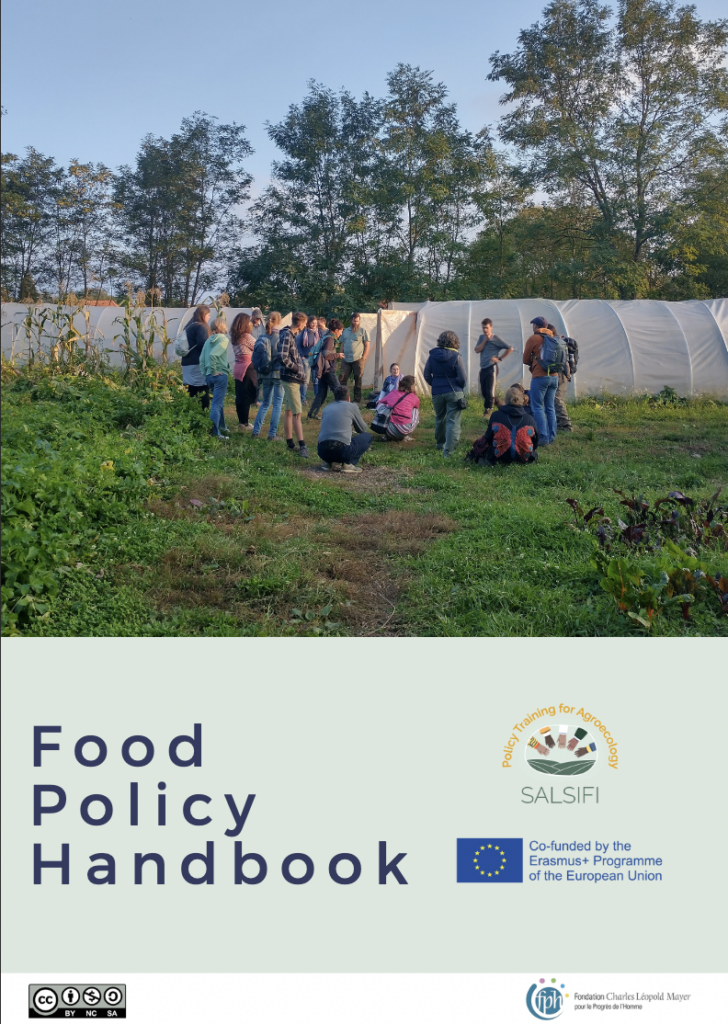
Welcome to the practical “Food Policy Handbook,” a comprehensive guide that showcases sustainable food policies at local, national,European, and Eastern European levels, drawing on real-life examples from various countries where the CSA/LSPA (Community Supported Agriculture / Local Solidarity Partnerships in Agriculture) movement has been a driving force for positive change. In this handbook, we delve into the world of policymaking, sharing hands-on experiences of how CSA (Community-Supported Agriculture)and LSPA (Local Solidarity-Purchasing Initiatives) have played pivotal roles in shaping these policies. Our focus is on providing concrete examples and actionable insights to empower food communities,comprising farmers, future farmers, rural development organizations,consumers’ groups, CSA networks, local authorities’ staff, environmental groups, and more.
Country Dossiers – SALSIFI Advocacy for Agroecology Partnerships
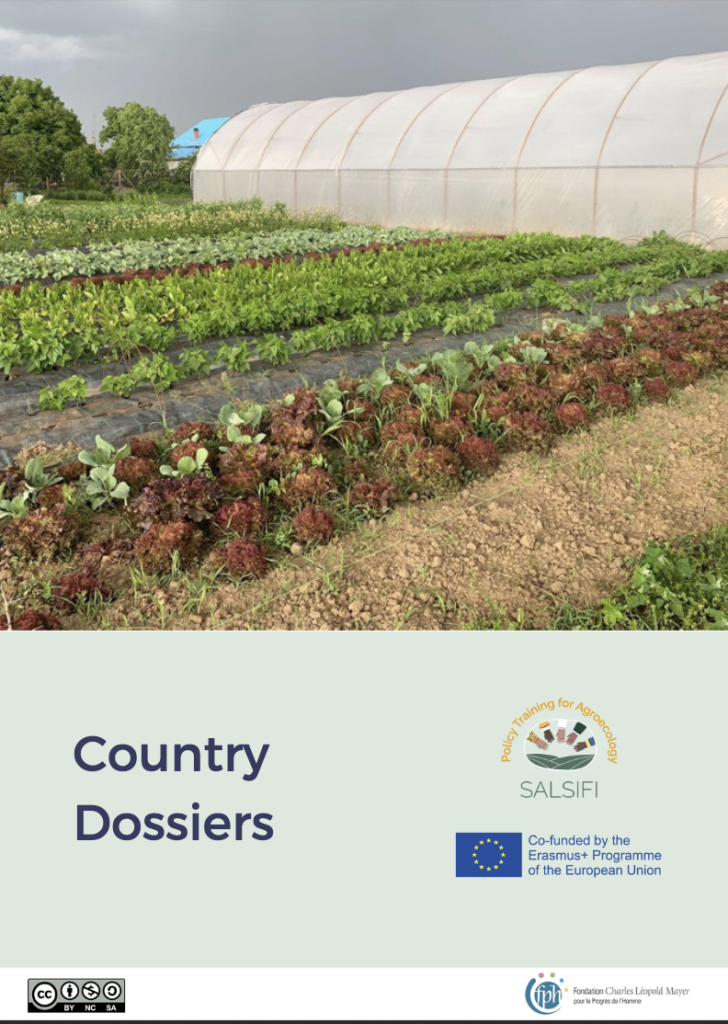
The Country Dossiers aim to provide policymakers, researchers,practitioners, and the general public with a comprehensive understanding of the diverse approaches and practices related to CSA and LSPA in each country. These documents serve as a vital tool to empower stakeholders and decision-makers to formulate informed policies and initiatives, fostering the growth and resilience of sustainable food systems within their respective nations. The compilation of these dossiers is the result of collaborative efforts between project partners from Belgium, the Czech Republic, France, Germany, Hungary, Italy, Romania, Spain, and the expertise provided by URGENCI, an esteemed organization known for its dedication to promoting CSA and LSPA globally. Together, they have meticulously examined the landscape of sustainable and community-centered agricultural practices, aiming to create a diverse and insightful collection of information.
Legal Guide on Farm to Fork Procurement
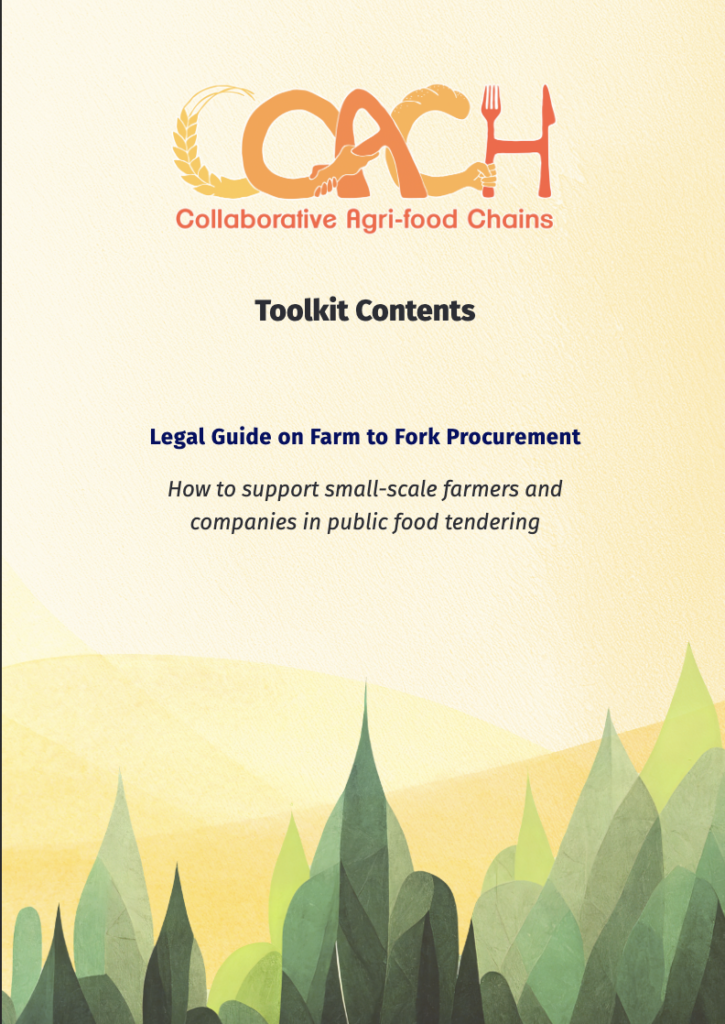
How to support small-scale farmers and companies in public food tendering. This guide aims to offer practical legal advice to public procurers and stakeholders interested in connecting public food procurement with small-scale farmers and SMEs, focusing on short food supply chains. The guide addresses procurement methods, organization, and criteria aligned with the COACH project’s goals of sourcing healthy, sustainable, and affordable food from local suppliers. The toolkit provides insights into making tender processes more accessible to SMEs and farmers, covering topics ranging from legal considerations for tenders below thresholds to criteria for tenders above thresholds, and exploring innovative approaches like dynamic food procurement.
Symposium: “Solidarische Landwirtschaft” (CSA) Regional, seasonal and equal – how do we collectively build a sustainable food system?”

Film about the symposium in CSA in Berlin in January 2023, the German CSA network organized as a consumer education event for the COACH project.
Local level module
National level module
Eastern Europe module
EU level module
Driving Innovation in Territorial Food Systems and Improving Outcomes for Producers and Consumers
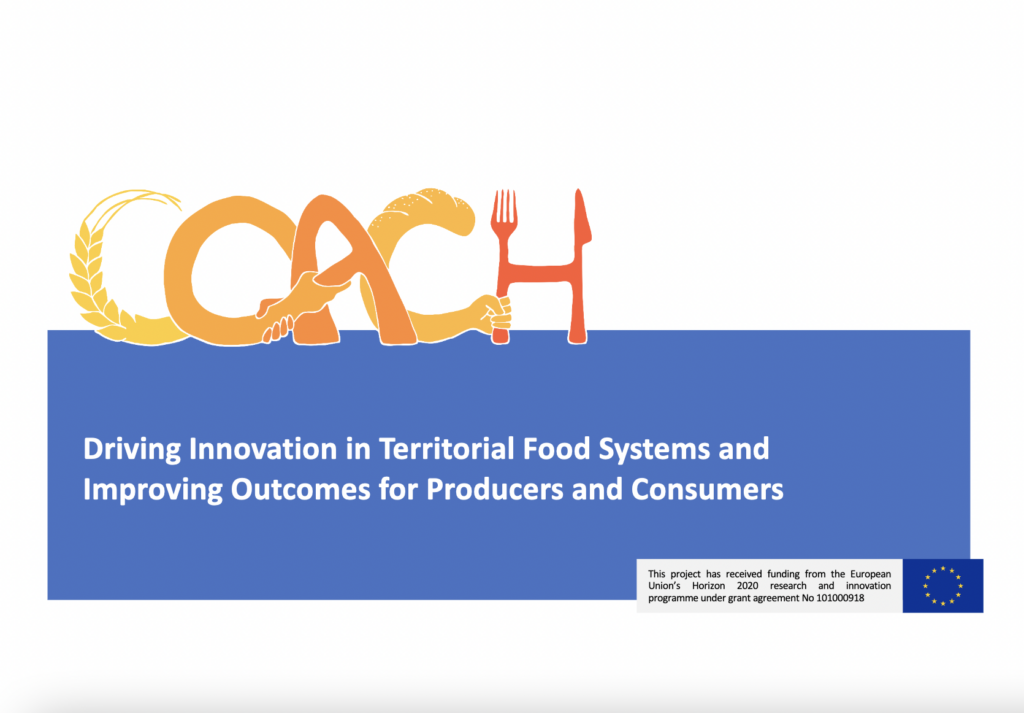
European Training Event –Understanding Costs and Benefits in Short Food Supply ChainsThe Paniers Marseillais(PAMA) Case